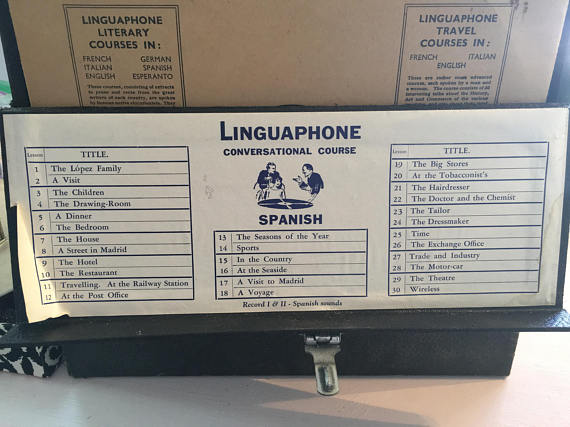I wonder if anyone has made a New Year’s resolution to learn a new language? I admire any expats who make a determined effort to learn the language of their host country and are willing to try to avoid asking that embarrassing question “Do you speak English?” at every opportunity.
After all, without a basic knowledge of the language, culture and customs, much of the new life that was hoped for will never be achieved. No, I am not talking about not seeking translation support when dealing with medical, legal and financial matters, where it is often important to seek professional assistance. I won’t pretend that learning a language is easy as one gets older; it is not, since learning a new language takes perseverance and effort.
I was pleased to read in the papers this week that both Prince George and his sister, Princess Charlotte, are learning Spanish at their young age. They do have one major advantage, of course, in that their nanny is Spanish. As well as an acceptance of the need to reach out to a wider world, the appreciation, skill and some proficiency in communicating in another language will help these young people to recognise that they do not live in a solely English speaking world and will help to give them a wider perspective of countries and cultures outside the United Kingdom.
During my time as a school inspector working in Wales, as well as England, I was always pleased to meet many young children who were confident in speaking both Welsh and English. The very act of learning a second language at such a young age makes the brain more receptive to the learning of other languages later in their school life.
I recall detailed research reports that indicated that children learning both Welsh and English achieved far higher success rates when it came to learning other languages than their English counterparts. The message is clear; to be a successful linguist, it is important that youngsters start learning a second language, any language, early in life.
I often hear from would-be expats who wisely make a determined effort to learn the language for some years before they even attempt to move to Spain. Others arrive in Spain and suddenly realise, and panic after a few brusque encounters at the Town Hall, that some grasp of the language would be useful.
It is at this stage that those long forgotten Linguaphone tapes suddenly see daylight after many years. Sometimes, newly arrived expats find themselves attending over-crowded language classes provided by the Town Hall, whilst others seek private lessons or attend a ‘crash course’. Whatever the approach, a recognition that not everyone in the world speaks English is a good start.
Many teachers of Spanish will confidently assure expats arriving in Spain that anyone over the age of 50 can successfully learn the language. I question this assertion as basically a ploy to gain more generous fee paying students, although I am sure that many will contradict me.
Let’s be honest, most older people find that learning a new language later in life to be challenging, but certainly not impossible. Whatever the result, the effort is always appreciated by the locals, and the ability to speak a few sentences, and to understand what is going on is invaluable when starting a new life in Spain, or any other country for that matter.
Many experts maintain that a grasp of English, Spanish and Chinese is all that is needed to conquer the linguistic world. I believe this to be true, since Spanish is the second most used language in the world after English. It always pleases me when I hear that Spanish is being taught in British schools, since I have always believed that this is the natural second language, and considerably more useful than French in today’s world. No, I am not a great enthusiast for the teaching of French in British schools, but it is certainly better than nothing at all.
I was once told that the best way for expats to learn a new language is to have an affair with a new partner from the country of your choice. Now, I am not suggesting that expats go in for partner swapping, but the point is that for learning to be successful, it requires a thorough immersion in the culture and traditions of the country, and not only learning the language as a dry academic exercise.
If you enjoyed this article, take a look at my websites: http://barriemahoney.com and http://thecanaryislander.com or read my latest book, ‘Living in Spain and the Canary Islands’ (ISBN: 9780995602724). Available in paperback, as well as Kindle editions.
Join me on Facebook: @barrie.mahoney
© Barrie Mahoney





